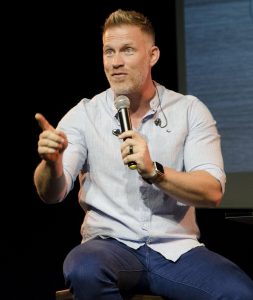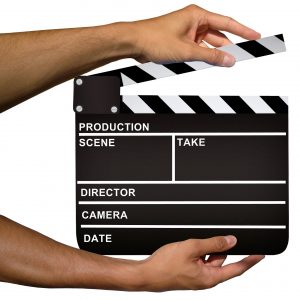Show and Tell
I expect the words ‘show and tell’ might take you back to your schooldays. We’d be asked to take something from home to the classroom, and tell the class about it – why we chose it, where we got it from… why someone else may be interested in it.

It’s usually associated with younger kids, but it’s increasingly used with older ones, even in secondary schools. One of the benefits of it for older people is that it can help build confidence in public speaking. In fact, I often use a couple of variations of it in my celebrant voice-and-communication work

The words ‘Show and Tell’ came to mind when I was talking with my friend, Henry, from our drama-school days. He said to me “You have all these fantastic, original ideas and concepts that you teach. When are you going to write the book?”
I gasped… “Put all my wonderful ‘secrets’ out there into the world? Are you mad? Do you think I’m mad?”

Ever cheerful, Henry said to me “Well, you’re not getting any younger. What happens when you snuff it? Will your ‘secrets’ go with you?”

Thanks, Henry! The truth is that although I’m proud of my ‘secrets’, they’re not exactly rocket science. Despite this, I’ve developed them over many years, and of all the people I’ve worked with, I can’t recall one who couldn’t understand what I was getting at. Putting those ‘secrets’ into practice is another matter. But anyone who really applies themself can improve the sound of their voice, and even more importantly, learn how to communicate in a natural, engaging way.
It’s not uncommon for those of us who pat ourselves on the back for coming up with good or original ideas to guard them like the family jewels. (Not that this family has any!)

It’s the fear that someone else in the same field will nick those ideas, and incorporate them into whatever they’re already doing. But if they read in a book or a blog a description of a particular idea, would they truly understand it; and would they be able to accurately teach it to someone else? Would they have the nuanced skill to demonstrate it properly? And would they be able to guide a client to the destination that they’re trying to reach? (Being able to become so adept at the new skill that it becomes second nature.)
To show my willingness to divulge some of my ‘secrets’, here’s one I may have mentioned in a previous blog. You’ll see that it’s not rocket science – but I haven’t come across anyone else who’s thought of this in relation to a live audience.

A lot of radio presenters speak of talking to an ideal listener. Well, early in my radio days, I was given some great advice: not only to speak as if to one person, but to actually use singular language, rather than plural. Instead of coming on air and saying “Hi there, everybody”, I’d just say “Hi there”. I’d never say things like “I reckon you’re all going to enjoy this song”. I’d get rid of the ‘all’. The listener really felt that I was talking to them.

Eventually, it occurred to me that this could be done in a ceremony. For instance, I’d never say “A lot of you will have travelled a long way to be here today…” I’d rephrase this to “You might have travelled a long way to be here today…“ or “If you’ve travelled a long way to be here today …”

The point of this is to speak to everyone there as an individual rather than as in a crowd, so that at some level they might think “I know there’s a lot of other people here, but I have the feeling that the celebrant is talking to me in particular.” We all like to feel special, and if we’re spoken to as if we’re separate people, that’s more likely to happen. I can’t think of anything that couldn’t be expressed in this singular way, and it has the desired effect on the listener.

My singular style isn’t rocket science, but it is one of many original ideas I use to help lift the standard of a celebrant’s (or any public speaker’s) communication.
I can Show you,
I can Tell you,
And I can Guide you to your destination.
I’ve just had a call from Henry. He asked if there’ll be a movie to go with the book! WT*?

I offer a free no-obligation chat (phone or Zoom) so you can see whether you’d benefit from working with me. Usually, the answer is yes. I work on a session-by-session basis. Some people book just one, and take it from there. Others commit to between two and four sessions. I charge £70 for a one-hour session. (And as someone remarks in the testimonials, I’m generous with my time.) When you get to four sessions, you get a fifth one, free of charge.
(Here’s another blog that tells you why I’m highly qualified to be a celebrant voice, presentation and communication coach.) https://paulrobinsonvoicecoaching.co.uk/my-background-and-celebrant-training/
Website: https://paulrobinsonvoicecoaching.co.uk/
Email: paulyrobinson@outlook.com
07469 957 199
If you’d like to train as a celebrant – one on one – with experts, check this: Heart-led Celebrants – Heart-led Celebrants (heartledcelebrants.com) We don’t just train you exceptionally well, we’re available to you afterwards for as long as we’re still on the planet. We want to to nurture you and your celebrant career.